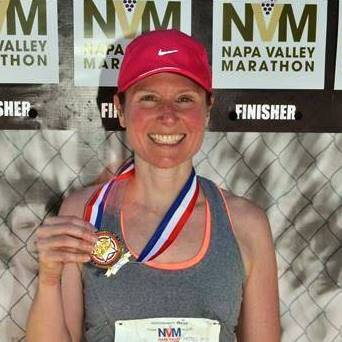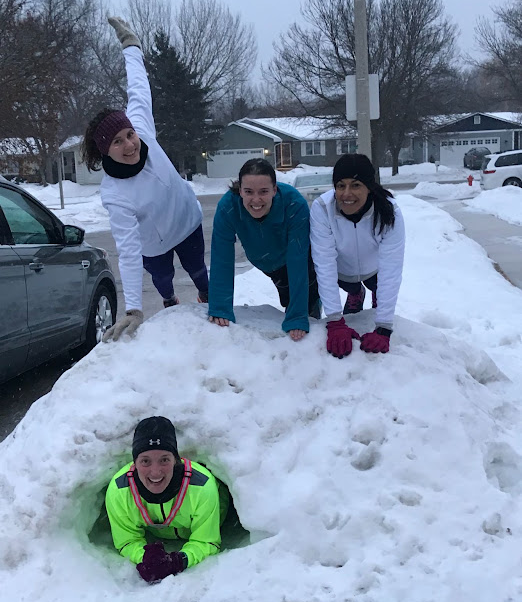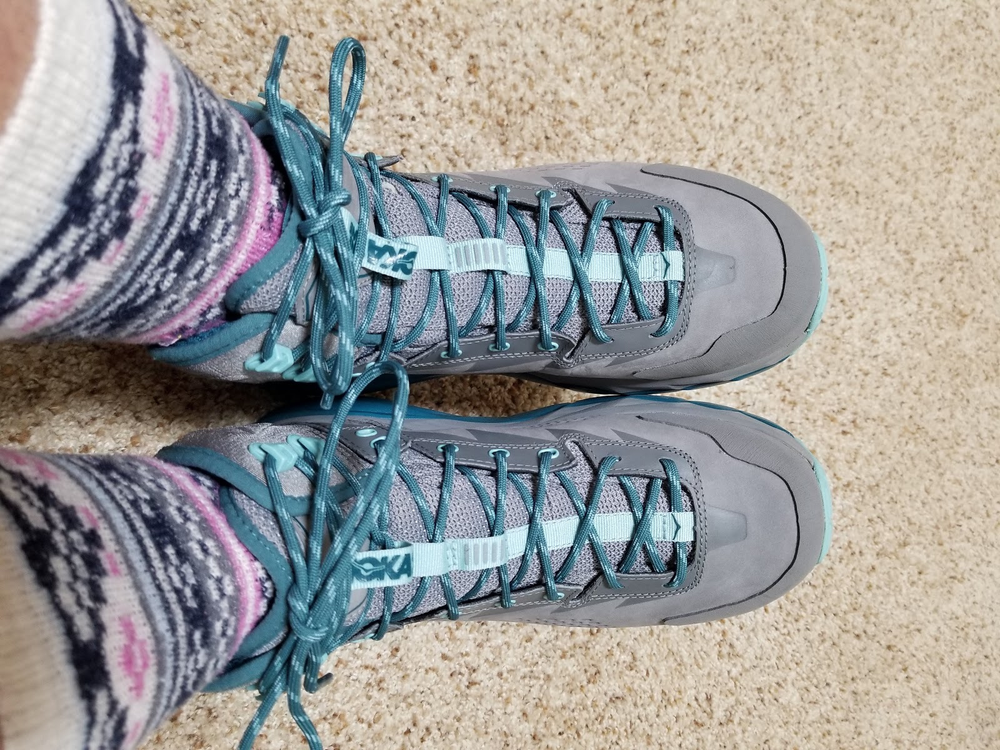
Reach Your Running Peak with a Coach
I’m not sure when I first heard of a running coach, but the concept seemed preposterous. Only competitive athletes use coaches, I thought, I’m not a good enough runner to spend money on a coach. (Dig that positive self-talk . . . sigh.) I dismissed it immediately and trained for my first marathon using a plan I found online. When I crossed the finish line (in 5:19), I was hooked. Within days, I registered for the Detroit Marathon, 7 months later.

I recall talking to a friend who had recently started running. She mentioned working with a coach. She was a mere mortal like me, yet she was making remarkable gains. Inspired by my spiritual shortcomings—envy, in this case—I began to seriously consider investing in a coach of my own. (Yes, Mom, I would jump off a bridge if my friends were doing it OR if it resulted in a PR.)
I connected with my first coach through the Minneapolis Running blog, which I likely discovered due to the healthy number of food-related posts (eating is my favorite and it has great recipes). It was in July, three months before my marathon and shortly after I downloaded the site’s marathon training plan. I was intimidated; how would I ever balance all that running with a demanding job that scoffed at the concept of a 40-hour workweek? The need to maximize every minute of my training was clear; I reasoned that a coach could help me do that. I reached out to schedule an initial phone call and was buoyed by what I heard, in short, “you can do this, and I will help.”
Each week, my coach posted my workouts. I completed them (or not) and posted my comments in the notes section. I appreciated that the plan was flexible; if I got sick, or was overly tired, the coach could respond by moving or tweaking the workout. I was elated to drop 50 minutes off my marathon time after three short months of coaching.
Since then, I’ve worked with three other coaches: one for my first 50k, another for my first 50 mile, yet another for my second 50 mile. In general, I have felt prepared for each event and have learned from each of my coaches and their different styles. I have changed coaches as I continue to evolve as a runner and refine what I need for each new distance.
Coaching has greatly contributed to my development as a runner. It’s an investment, yes, but as my Dad has always said, “there is no better investment than yourself.” From my experience, here are a few suggestions for finding the right coaching fit:
- Ask around for leads: We are fortunate to have such a wonderful running community in Rochester. Tap into the knowledge that surrounds you, whether in person (at an event, a group run or your favorite local running store) or online (for example, Facebook groups like Rochester Track Club, Rochester-MN Running, Team R.E.D., Upper Midwest Trail Runners, etc.) to access (free!) expertise on finding the right coach and maximizing your relationship.
- Interview potential coaches: Do they have experience working with someone like you? (In my case, a mid-pack, forty-something, relatively inexperienced female ultra-runner tackling a new distance.) Have they gone your goal distance? (It is important they understand the physical and mental challenges of your goal.) What is their coaching philosophy? (High mileage? A focus on cross-training? Running by feel? Etc.)
- Be open and honest: If something isn’t working for you or if you have concerns, let your coach know. They are only as helpful as the information they get from you. While working on this article, I looked back on some emails with my first coach. In one, I expressed concern because I felt like I wasn’t running enough miles. I received a fast response providing more information about the big picture plan, which helped put my mind at ease.
- Work together: A coach is a partner, not a boss. Consult them when you are thinking of adding a race to your schedule. Obtain their feedback on the goals you’re setting; maybe you’re capable of far more than you give yourself credit. If a workout feels like too much, let them know. (I had this conversation with my last coach, saying there was NO WAY I could hit the tempo paces he prescribed. He encouraged me to try anyway, so I did, and nailed the workout. It’s likely that, without his belief in me, I would have written off the workout before I even laced up my shoes.)
- Know when to fold ‘em: I give people the same advice for coaches and therapists – ultimately, they work for you. If you’re not getting the results you desire or if your expectations are not met, talk to your coach about it first, but then feel free to move on. Even if you can’t discern exactly what isn’t working with your relationship with your coach, if something feels off, move on. Minnesota nice won’t make you a better runner.
Have you worked with a coach? What would you add to this list? If you are considering a coach, what other questions do you have?
Leave a Comment
You must be logged in to post a comment.






